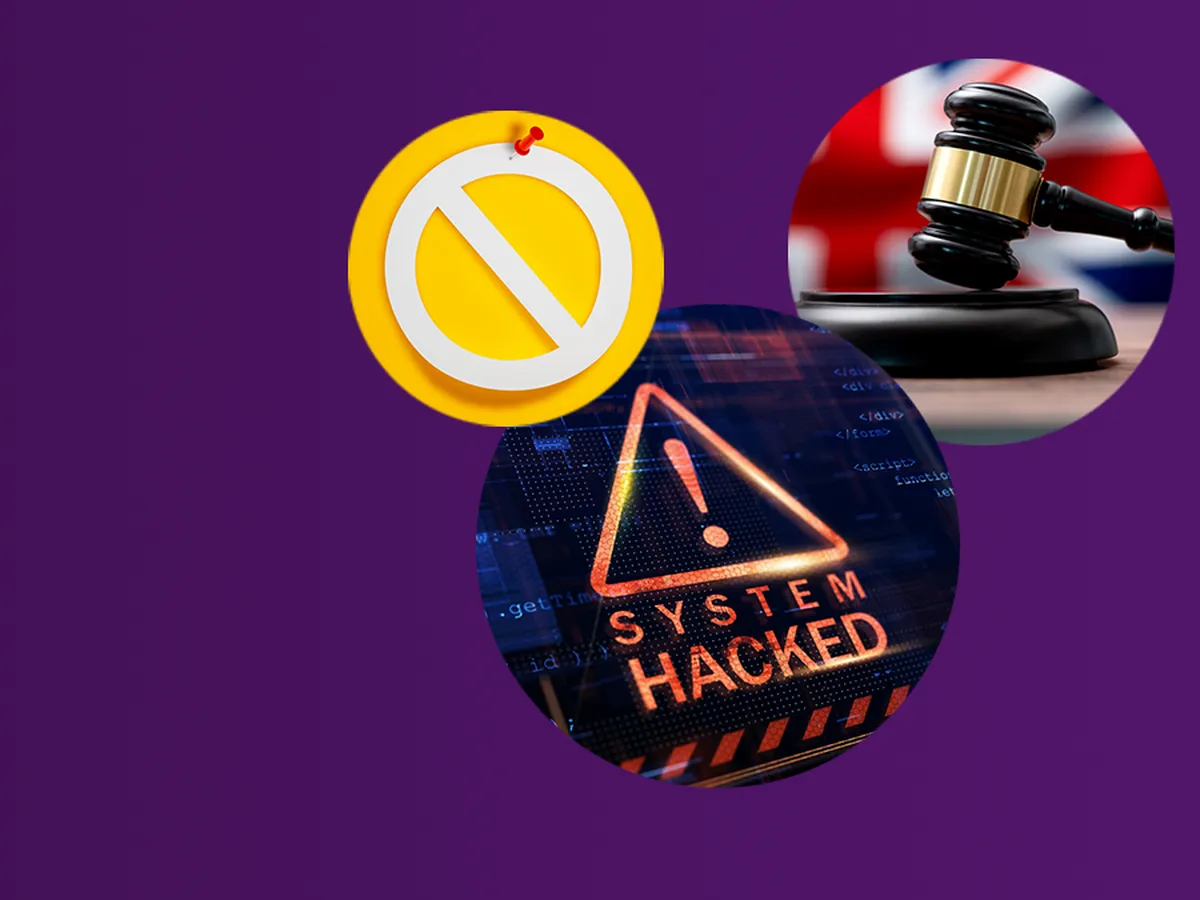
- Ransomware
- 8 min read

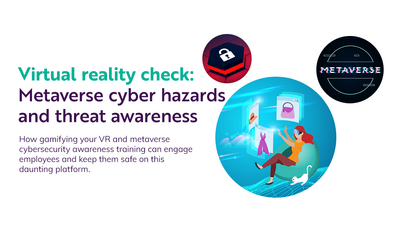
Virtual Reality (VR) and the metaverse are transformative technologies, offering exciting possibilities for entertainment, social interaction, and business applications. However, as with any innovation, there are hazards and pitfalls that CISOs and cybersecurity leaders must consider to ensure the safety and security of their organisations and employees.
In this article, we delve into the risks associated with VR and the metaverse, exploring the potential pitfalls of interacting with strangers and shedding light on the importance of implementing robust cybersecurity measures.
By examining behavioural analytics, we aim to provide actionable insights for CISOs and cybersecurity leaders to protect their stakeholders effectively.
Why are cyber criminals turning to virtual reality attacks? One reason is that the VR and the metaverse offers a new level of connection that other digital channels do not, allowing for far more invasive social engineering attacks and far more powerful identity theft cases.
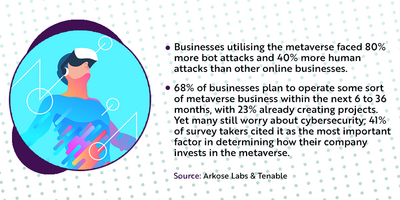
Millions of people are already using metaverse platforms, and that number will only grow. In addition, many brands are still trying to figure out how to best use the metaverse – often diving onto the platform without fully appreciating the threat surface they are stepping into. This presents a large pool of potential victims for phishers – potential victims who are often thrown onto the platform without any prior training or materials on how to stay safe and what to avoid.
The metaverse also presents new challenges for security solutions because the anti-phishing solutions that worked in the past won't necessarily be effective in the metaverse.
Virtual reality can induce powerful psychological responses, blurring the boundaries between the virtual and the real world. Studies have shown that prolonged exposure to virtual environments can lead to phenomena like "virtual hangover" or "cybersickness," causing disorientation, nausea, and even emotional distress.
CISOs must consider these psychological risks when deploying VR applications within their organisations, ensuring that employees are professionally trained and adequately supported.
Immersive VR experiences often involve physical movement, which can lead to accidents and injuries. Users may inadvertently collide with real-world objects or lose awareness of their surroundings, increasing the risk of falls, collisions, or other mishaps. If a malicious actor finds a backdoor into your virtual reality headset, they will be able to manipulate your virtual surroundings in order to harm you in the real world.
CISOs should promote safety protocols and provide guidelines to users, emphasising the need for clear play areas and caution during VR experiences.
The metaverse encourages social interaction with strangers, creating virtual communities and facilitating shared experiences – like many social media platforms. However, this openness can expose individuals to significant privacy risks. Unscrupulous actors may attempt to exploit personal information shared in the metaverse, leading to identity theft, fraud, or harassment.

Today's phishing scams are more sophisticated and convincing than ever before. In the metaverse, cybercriminals have been able to imitate legitimate brands, even including metaverse platforms themselves such as Decentraland and Sandbox. Many investors and individuals have lost thousands of dollars with the intent of purchasing property on metaverse platforms, only to discover that they had clicked on a fraudulent site. For example, in Decentraland, a popular Ethereum-based virtual world, scammers set up fake websites that looked like the Decentraland website. These websites then tricked users into inputting their private keys, which would allow the scammers to steal their cryptocurrency. With regulations in its infancy, customers and brands are more likely to fall prey to phishing scams in the virtual worlds we are building. Metaverse phishing scams will only become more common as the metaverse continues to grow. Brands need to be aware of the risks and take steps to protect themselves.
Interacting with strangers in the metaverse opens the door to various forms of social engineering and manipulation. Cybercriminals may masquerade as friendly avatars to gain trust and exploit unsuspecting users. By leveraging psychological techniques, such as persuasion and influence, these malicious actors can trick individuals into revealing sensitive information, downloading malware, or engaging in harmful behaviours.
CISOs must educate users about the risks of social engineering and encourage vigilance when interacting with unknown individuals in virtual environments.
The metaverse presents new avenues for cyberbullying and harassment, as individuals can hide behind avatars and pseudonyms. Online disinhibition, a psychological phenomenon where individuals feel less constrained by social norms in virtual settings, can exacerbate such behaviours. In fact, 41% of VR users have experienced verbal abuse or harassment within virtual environments.
Implement robust authentication mechanisms to ensure that users' identities are verified before granting access to virtual environments. Multi-factor authentication, biometrics, and digital certificates can significantly reduce the risk of unauthorised access and identity theft.
Employ end-to-end encryption to protect sensitive information transmitted within virtual environments. Ensure that communication channels are secure and properly encrypted to safeguard user privacy and prevent eavesdropping attacks or data interception.
Educate users about potential risks, teaching them to identify and report suspicious activities or individuals. Provide training on social engineering tactics, privacy protection, and responsible behaviour in the metaverse. Promote a culture of cybersecurity awareness within the organisation and encourage users to stay informed about emerging threats.
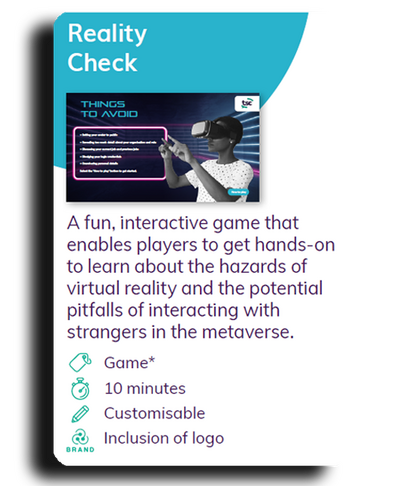
Virtual reality cybersecurity can be a daunting topic for employees who are not tech savvy or are not aware of this emerging technology’s scale. This is why TSC have created a fantastically engaging VR cybersecurity game called ‘Reality Check.’ A brand-new resource that CISOs can utilise in their training and awareness campaign, ‘Reality Check’ is a fun and interactive game that enables players to get hands-on with learning about the hazards of virtual reality and the potential pitfalls of interacting with strangers in the metaverse. It is a succinct yet comprehensive 10-minute game that can be customised and include your organisation’s logo for delivery on your LMS (Learning Management System). Interested in gamifying your virtual reality cybersecurity training? Let’s schedule a call to run through a demo.
Leverage advanced threat intelligence tools to monitor virtual environments for suspicious activities, detecting and responding to potential cyber threats promptly. Establish an incident response plan to address security incidents effectively and minimise the impact on users and the organisation.
Virtual reality and the metaverse offer exciting opportunities for innovation and growth. However, CISOs and cybersecurity leaders must remain vigilant and proactive in addressing the hazards associated with these technologies.
By understanding the psychological impact, privacy risks, and potential pitfalls of interacting with strangers, organisations can implement robust cybersecurity measures to safeguard their users and protect sensitive data.
Through a combination of training and awareness, secure authentication, encryption, and continuous monitoring, CISOs can navigate the complexities of VR and the metaverse while enabling a safe and secure digital future for their organisation and employees.
If you would like more information about how The Security Company can help you to deliver targeted cyber security training or how we help clients with metaverse and virtual reality training and awareness ... please contact our Head of Business Development and Sales, Jenny Mandley.
The Security Company's vast library of customised and non-customised products and services are tailored for small, medium and large organisations and are available in a variety of languages. We also offer bespoke solutions for organisations that desire training and awareness materials built from the ground up.

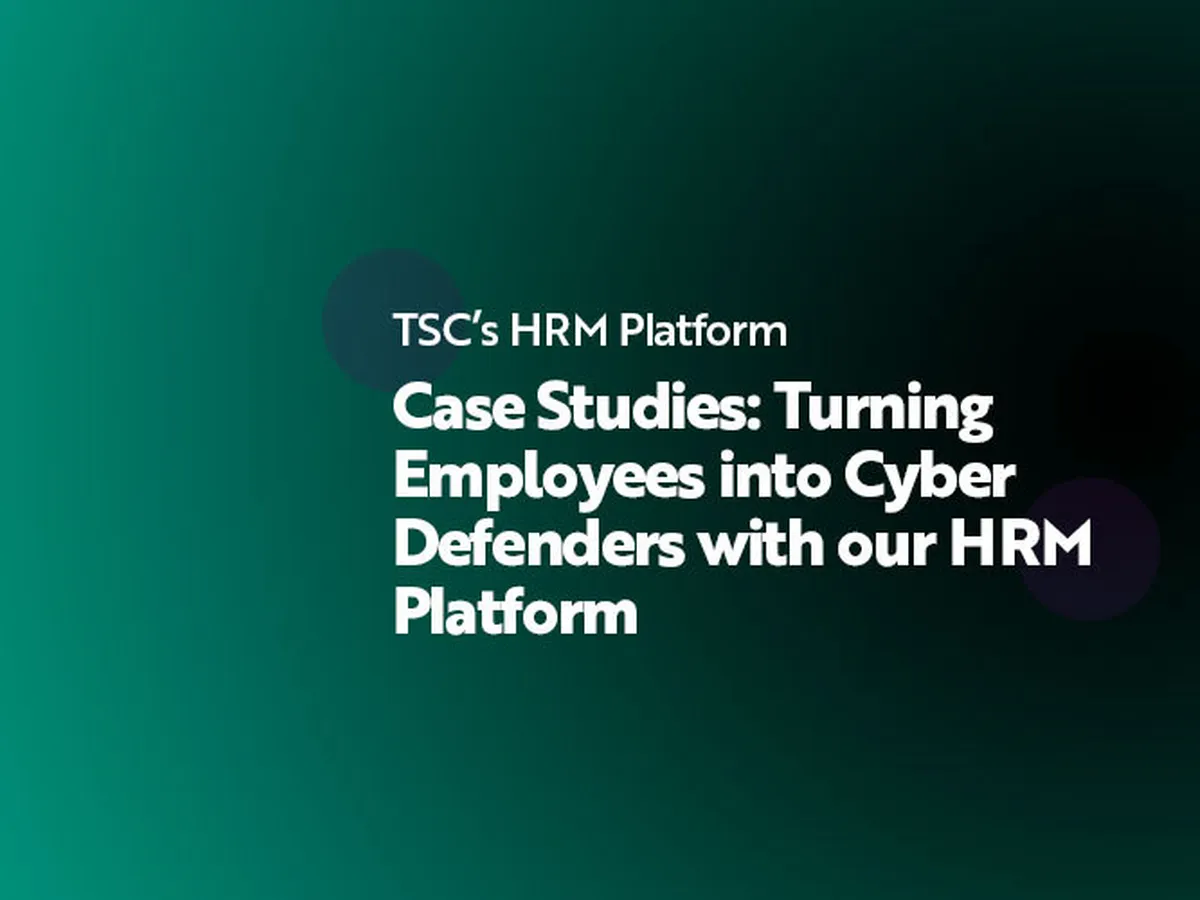
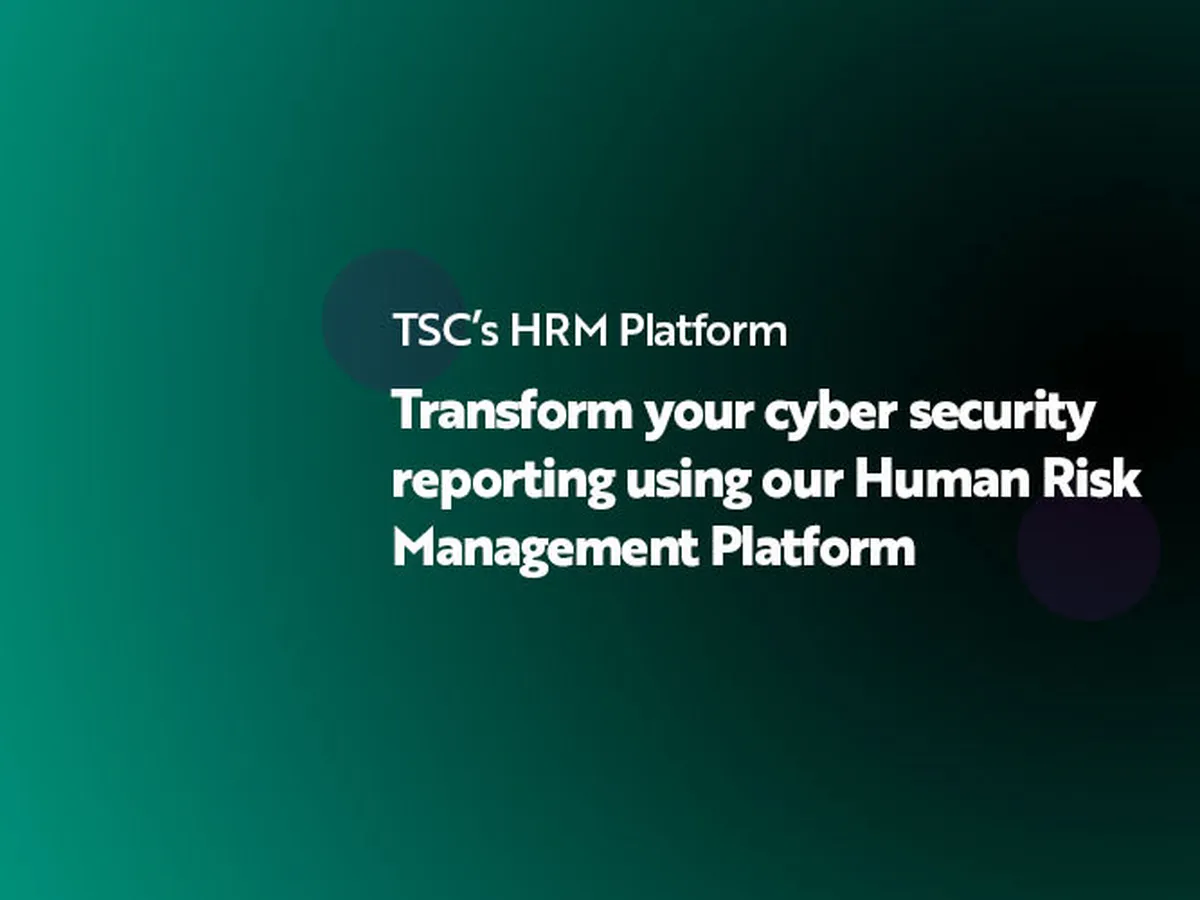
© The Security Company (International) Limited 2025
Office One, 1 Coldbath Square, London, EC1R 5HL, UK
Company registration No: 3703393
VAT No: 385 8337 51


